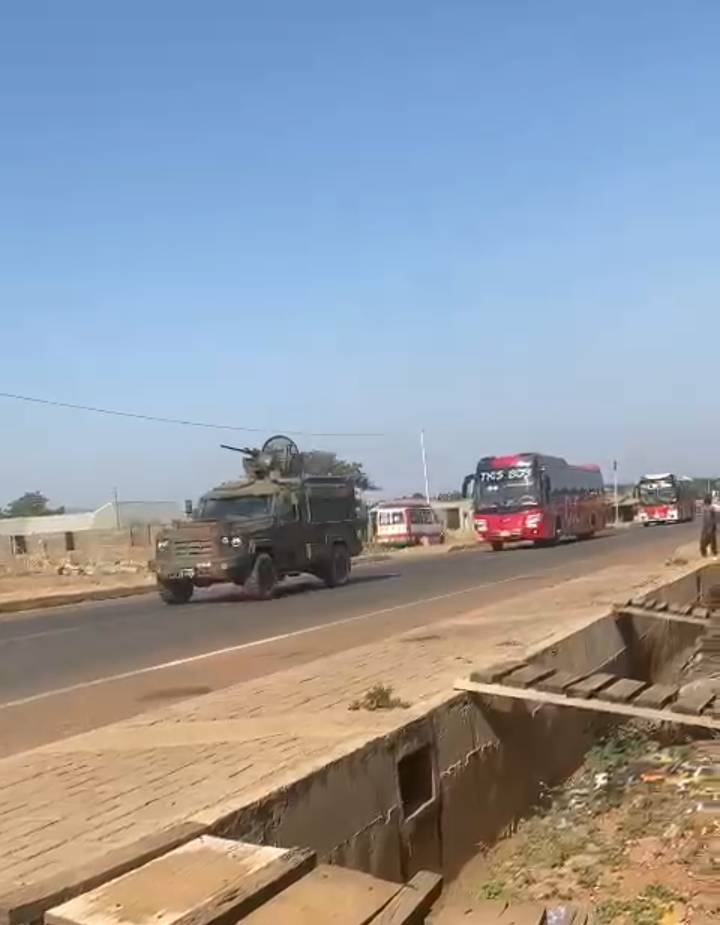The Bawku conflict, which has plagued the town in Ghana's Upper East Region for some time, has again escalated with deadly clashes on Tuesday, November 12, 2024. In the Daduri suburb of Bawku, gunfire erupted between rival groups, leaving two people dead and injuring multiple others. Among the victims were individuals who sustained severe gunshot wounds during the violent exchanges. In addition, the violent outbreak saw two homes set on fire, adding to the growing toll of destruction and displacement within the community.
This recent episode marks a troubling continuation of unrest in Bawku, where a death toll of 25 has been reported since October 2024. Tensions remain high following recent attacks, one of which tragically involved an elderly man who lost his way returning from the hospital. The escalating violence has left community members fearing for their lives, with many residents feeling that evacuation is the only option. Indeed, six buses filled with displaced individuals—families and individuals from various backgrounds—were seen leaving Bawku under the watch of military escorts, bound for Bolgatanga, the regional capital, where they hope to find safety.
Life in Bawku has been severely disrupted. Businesses have closed, schools are shuttered, and essential services are operating with limited availability. The town, which once thrived with local commerce and social activity, now finds its streets largely deserted, as a 6:00 am to 6:00 pm curfew has been imposed. Security agencies, present in large numbers, patrol the area, hoping to prevent further outbreaks of violence. Yet, residents report that despite the curfew, the underlying tensions show little sign of dissipating, and sporadic violent incidents continue to fuel fear and uncertainty.
The recent return of Alhaji Seidu Abagre, a local chief who had previously lived in exile, appears to have contributed to the escalation of hostilities. According to sources familiar with the local situation, Abagre's return has reignited old rivalries, with some viewing his presence as a provocation. In an already volatile environment, his reappearance has sparked renewed opposition and resentment among factions with longstanding grievances. This has, in turn, led to violent confrontations in the form of ambushes and targeted attacks on travelers and traders along the town’s main routes.
The curfew, though stringent, has proven difficult to enforce due to the complex nature of the Bawku conflict. Security officials acknowledge that the curfew is only one element of a broader strategy needed to restore peace. Police and military units continue to monitor key areas within Bawku, yet they face challenges in ensuring the safety of all residents, particularly as some factions refuse to cooperate with security measures. Authorities are urging the public to adhere to the curfew restrictions and have reiterated their commitment to safeguarding the town’s remaining infrastructure.
Reports of the recent clashes have spread swiftly, drawing reactions from civic leaders, politicians, and advocacy groups. Many are calling for immediate government intervention, not just in terms of law enforcement but through meaningful dialogue aimed at addressing the root causes of the violence. However, the complex nature of the Bawku conflict, with its deep-seated historical and political roots, means that finding a solution will be no easy task. The current administration has pledged to mediate, though efforts to broker peace have previously been met with mixed results.
Displaced residents, particularly those who have left for Bolgatanga, express mixed emotions about their departure. For many, the decision to leave Bawku was heart-wrenching. These individuals have longstanding ties to the area; it is their home, where they have built lives, raised families, and developed businesses. Leaving behind their properties and belongings, many evacuees hold onto the hope that one day, Bawku will be safe again, allowing them to return. In the meantime, they face the uncertainty of life in temporary housing in Bolgatanga, often with limited resources and no clear timeline for a return.
At the national level, there is growing concern about the potential implications of the Bawku conflict on the broader region. With Ghana’s general elections on the horizon, maintaining stability in the northern parts of the country is critical for ensuring safe, secure voting processes. Political leaders and stakeholders are closely watching the developments in Bawku, recognizing that unresolved conflicts in key areas could impact voter turnout and perceptions of the electoral process.
Observers have noted that restoring peace in Bawku will require comprehensive measures. Key among these is the establishment of an inclusive dialogue platform that brings together representatives from all factions, including both community leaders and youth activists, whose voices are crucial in fostering long-term reconciliation. Civic organizations, too, are expected to play a role by facilitating peace-building initiatives, with some proposing education programs focused on conflict resolution, tolerance, and the importance of peaceful coexistence.
As authorities work to de-escalate the current crisis, families who have chosen to stay behind in Bawku continue to grapple with fear and uncertainty. These residents remain hopeful that dialogue can yield a path to peace, though they are acutely aware of the risks posed by the ongoing clashes. In a community that has seen too much division and bloodshed, many yearn for a day when Bawku can return to being a place of safety, mutual respect, and harmony.
The tragedy in Bawku serves as a somber reminder of the fragility of peace. As tensions continue to rise, the people of Bawku are left with an uncertain future, where the promise of safety remains elusive. In the midst of these challenges, there is a resounding call for unity, compassion, and the pursuit of common ground. The people of Bawku, both those who have evacuated and those who have stayed, hope for a resolution that brings lasting peace to a community that has endured too much conflict for too long.


